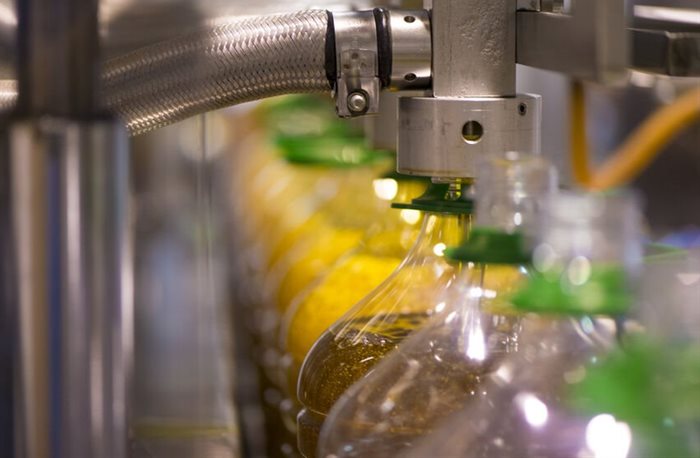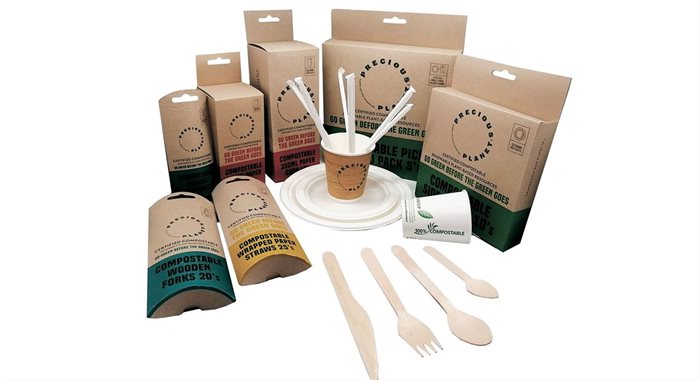Listed consumer packaged goods (CPG) group Libstar is working to reduce waste and contribute to the circular economy by investing in sustainable packaging.

Source: ©juananbarros via
123RFAccording to a 2021 Council for Scientific and Industrial Research (CSIR) report, 45% of the available food supply in South Africa is lost or wasted. The report goes on to state that most of that waste (49%) happens in the processing and packaging stage of the value chain.
With the situation in the Ukraine threatening to spark a global food shortage, Libstar notes that eliminating waste has never been more important.
Derek Couzens, commercial executive at Rialto, a member of the Libstar family, says, “In 2018, we started off with just five biodegradable and compostable products in our food service offering. Now, we have over 120 and counting, including our Precious Planet range of our enviro-friendly packaging products. By the end of the year, we are aiming for 40% of all our food service packaging to be entirely sustainable, either recyclable, biodegradable, or compostable. That is essential if we are to do our part in being responsible corporate citizens.”

Precious Planet. Source: Supplied
Circular economy
A circular economy is an economic model designed to minimise waste by moving away from single use materials and encouraging sustainable production techniques. From a packaging perspective, this means creating and utilising materials that can be recycled, used as compost or reused repeatedly. For example, the push for creating circular economies has fuelled the use of bagasse, a waste product of sugarcane, as a sustainable packaging solution.
As things stand, Libstar notes that recycling is one of the best practical examples of what circular economies could look like. To contribute to reducing waste and increasing recovery, as well as the recycling and reusing of materials in the South African market, Extended Producer Responsibility (EPR) fees were introduced locally in November 2021. Rialto too has moved quickly to achieve compliance in this regard.
In Europe large portions of waste are either incinerated or exported, and therefore have a lower recycling rate compared to South Africa where very little waste is incinerated. In 2019, South Africa achieved an output recycling rate of 23.4% versus 7.9% recycling rate for Europe.
According to the Paper Manufacturers Association of South Africa (Pamsa), in 2022 the local recycling rate of paper and board in South Africa is 70% versus the global rate of 59.1%.
‘Generation sustainability’
They may not have started the trend, but millennials and Generation Z have been nicknamed the “sustainability generations” and their fervour is influencing the generations before them.
According to the World Economic Forum, just over one third of Gen Z respondents they polled said they choose brands demonstrating environmentally sustainable practices or values, while 28% have stopped buying from brands with poor ethical or sustainability values. This, in turn, has encouraged responsible brands to pursue more environmentally ethical modes of doing business.
Couzens says, “The research we have encountered shows that 83% of millennial consumers prefer to pay more for sustainable packaging. This, in turn, has led to some sustainable products growing at a rate of more than seven times that of non-sustainable ones. That means being environmentally ethical is not just the right thing to do, it is also an ultimate sustainable value-add to one’s business and business partners.”
Driving change
"Consumption choices are powerful decisions that can shape markets and production patterns. They can have a tremendous impact on how companies and governments use and allocate natural resources. Education around sustainable consumption, however, is a team effort that requires both consumers and producers to become responsible citizens to help make an economy truly circular," says Libstar.
Rialto, on a bi-monthly basis makes available on its website a 'Green Gazette' to all its interested food service packaging customers informing them of ongoing trends and matters of interest in this regard.
Couzens concludes, “Everyone has a role to play, and the key is the acceptance of our roles. In the past that has been problematic, but we are seeing encouraging signs. For our part, the job is to make sure that our manufacturing and packaging processes are as green and eco-friendly as we can possibly make them. Companies that fail to take sustainability seriously will have a hard task attracting the customers of the future.”









































